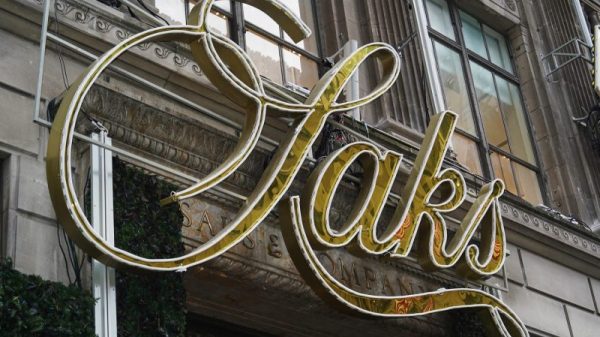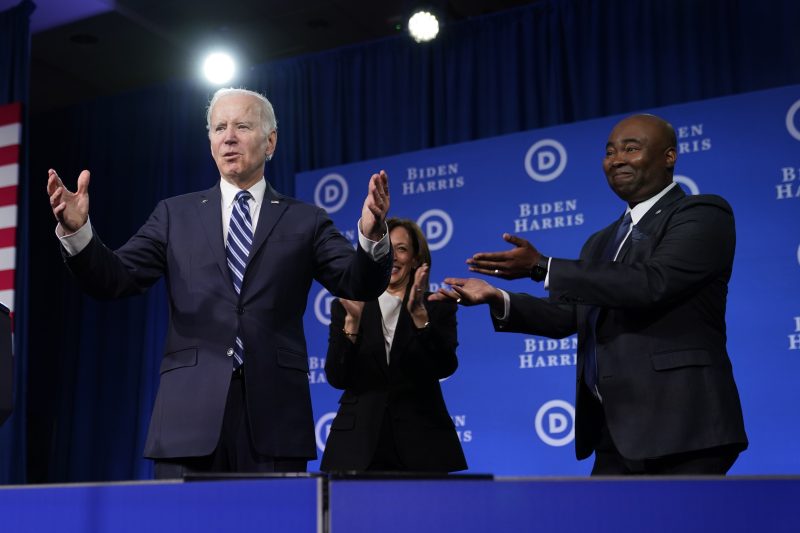PHILADELPHIA — Democrats on Saturday voted overwhelmingly to remake the party’s presidential nominating calendar, embracing President Biden’s push for South Carolina to be the first state to hold its contest in 2024 and replacing Iowa amid calls for greater racial, geographic and economic diversity in the process.
The move by members of the Democratic National Committee was long expected, but it does not guarantee the calendar will ultimately be enacted as designed. In December, Biden asked DNC leaders to move up South Carolina, which sealed his comeback victory in the 2020 Democratic primary, to the first slot. Under the new plan, New Hampshire and Nevada would hold their primaries a week later, followed by primaries in Georgia and Michigan.
The vote here Saturday morning came at the DNC winter meeting, where Biden and Vice President Harris spoke Friday to some of the party’s most active members from across the country. Biden, who has yet to officially announce his reelection plans but has said he intends to run for a second term, was greeted by cheers of “four more years” as he took the stage.
The voice vote marked the last formal step in DNC efforts to fundamental overhaul the nominating calendar, as committee members officially approved the new order set by Biden. But the push to reorder the states still faces some hurdles.
Two states granted entry into the early window, when contests are held before a large number of states vote on “Super Tuesday,” have yet to change the dates of the primaries and have until June to do so. Georgia Democrats have lobbied state officials to change the date of their primary, but there appears little appetite to do so.
In New Hampshire, where state law mandates they hold the first primary, Democrats say they cannot change the date of the primary. DNC officials have already passed rules that dictate states violating the calendar order will be punished, as will candidates who campaign in states that hold primaries outside their assigned days.
New Hampshire Democratic Party Chairman Raymond Buckley said Friday the new plan puts Democrats in his state in “an impossible no-win position.” He said, “We know that New Hampshire will still hold the first in the nation primary, whether or not the DNC approves of it,” citing a state law from the 1970s that requires the state to hold the first primary in the country. New Hampshire has a Republican state legislature and governor, Chris Sununu, who has also said he would follow state law.
Leah Daughtry, a DNC member from New York, dismissed the state law argument in a speech before the vote: “None of that is more important than what the party said it wants in this process.” Buckley and other New Hampshire representatives argued the new calendar allows a new line of attack from Republicans, especially as Republicans now descend on the state to campaign for their party’s presidential nomination.
“We are frustrated because as many times as we say it, no one seems to listen when we say that this will only hurt President Biden in our purple, battleground state,” Joanne Dowdell, a DNC member from New Hampshire and member of the Rules and Bylaws Committee, said on the floor before the vote. DNC members from Iowa similarly denounced the new calendar. The state lost its status under the proposal following the 2020 caucus debacle, when it took days to tabulate results.
Iowa Democratic Party Chair Rita Hart said her state “has been put in a position that makes it impossible to comply with both DNC rules and our own state law, which has exactly zero chance of being changed by the Republican legislature.” Scott Brennan, a DNC member from Iowa, said the calendar “is a mess.” He added, “Passing the calendar today accomplished nothing other than kicking a deeply flawed can down the road.”
The Rules and Bylaws Committee will review the early calendar again ahead of the 2028 election, when an open primary for the Democratic nomination is expected. “No one state should have a lock on going first,” Rep. Debbie Dingell (D-Mich.), who successfully pushed for her state to join the early window, said in a speech Saturday endorsing the new calendar order. Her comments drew applause in the room.
Iowa, a state that has an overwhelmingly White population, drew criticism during the 2020 Democratic primary for its lack of diversity and the inaccessibility of its caucuses, which are held on a winter weekday night and pose participation barriers for those who may have work, are disabled or have other obligations. In 2020, the Iowa Democratic Party also struggled to tabulate the results, leading to more criticism of their caucus system.
With South Carolina, the state that resuscitated Biden’s presidential bid in 2020, Democrats are elevating the role Black voters, a crucial voting bloc for the party across the country, will play in selecting the party’s nominee. “This calendar does what is long overdue,” DNC Chair Jaime Harrison said before the vote. “It expands the number of voices in the early window, and it elevates diverse communities that are at the core of the Democratic Party.



























